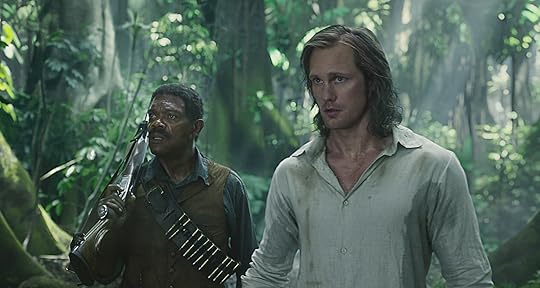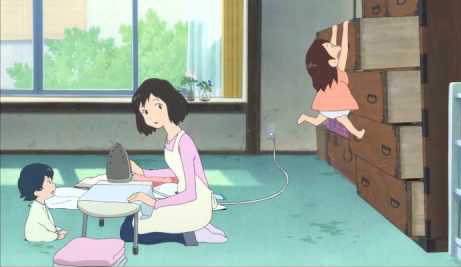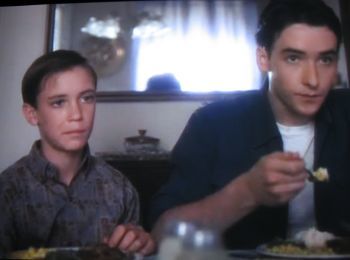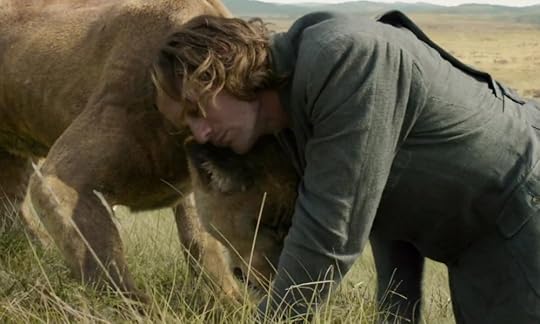 Think back about the books you read and the movies you watched in the last year (heck, think about just the ones you experienced in the last month). Which do you still remember vividly? Which are already foggy in your memory?
Think back about the books you read and the movies you watched in the last year (heck, think about just the ones you experienced in the last month). Which do you still remember vividly? Which are already foggy in your memory?
Now: which type of story do you want to write?
No-brainer, of course. You want to write stories your readers will remember!
But how do you do that?
Although there are a number of factors (some of them entirely subjective to the readers themselves), one of the most important ways to get readers to first care about your stories and, as a result, remember them is to write a story about something.
Wha? Aren’t all stories about something? That’s the whole point of plot, isn’t it?
Yes and no.
Here’s what it boils down to: there are two types of stories. Stories that are about something, and stories that are about something.
What Is Your Story Really About? (Hint, It’s Not Your Plot)
Plot is an external, visual metaphor for what your story is really about—the story under the story. Theme is the most obvious manifestation of this “understory.” But you can take things even further by creating story subtext that is never brought to the fore, but which powerfully influences your readers’ experiences of the obvious plot.
Consider a couple contrasting examples. We want to look, first, at what these stories are about, and then what they’re about.
What’s Your Story About on Its Surface?
Wolf Children (directed by Mamoru Hosoda): On its surface, this beautiful Japanese animation seems to be about werewolves—specifically a human mother struggling to survive with her half-breed children in the wake of their werewolf father’s death.

Stand by Me (directed by Rob Reiner and based on Stephen King’s short story “The Body”): On its surface, this coming-of-age story is about a group of four adolescents striking out on a grand adventure in hopes of discovering the body of a missing boy and getting their pictures in the paper.

The Legend of Tarzan (directed by David Yates): On its surface, last year’s attempt at a blockbuster is about an English lord, orphaned and raised in the jungle, who is forced to return to his previous way of life Africa in order to confront old enemies and protect those he loves.

What’s Your Story
Really About?
Wolf Children: By the time the final credits roll (to the tune of a lullaby about motherhood and a collection of snapshots from the characters’ childhood), viewers understand this is not a story about werewolves. This is a heartrending, life-affirming story about the sacrifices of parenthood, the anguishes of growing up, and the challenges of the parent-child relationship.

Stand by Me: As with many of Stephen King’s stories, the delightful nostalgia and sometimes over-the-top violence and grossness isn’t actually the point. The point is the character’s deeper inner journeys, in this case, particularly the protagonist Gordie’s exploration of life, death, friendship, and growing up.

The Legend of Tarzan: And now we come to the ringer of the group. What it’s about on the surface is all it’s about. Really, you could stick just about any recent blockbuster in here and find the same regrettable lack of substance. I’m picking on this particular film simply because it had the opportunity to be about more, thanks to the protagonist’s unique circumstances and (unrealized) inner conflict. It’s telling that, a couple months after seeing it, I honestly can’t remember hardly anything about it—in contrast to the previous two films.

3 Questions to Help You Find Your “Understory”
Your story’s “understory” is created from deep and meaningful subtext. You find this by examining your story’s plot and asking yourself what greater life questions these external events might logically evoke from your characters.
Ask yourself:
1. If you had to live through the events of your story, what questions of the soul do you think you’d be asking?
2. Then step back even further and look at your story’s big picture. Is the overall conflict a metaphor for something deeper—such as the rigors and blessings of parenthood or coming to grips with death?
3. Once you’ve identified the deeper questions and metaphors offered by your external plot, what can you do to make sure you’re making the most of them?
Don’t leave your story’s best possibilities languishing out of sight. Bring them forward. Use them to strengthen the foundation of your story, to reveal your theme, to get readers to identify with your characters’ struggles, and to write a story they’ll never forget.
Wordplayers, tell me your opinion! When you look past your plot, what is your story really about? Tell me in the comments!The post How to Write Stories Your Readers Will Remember appeared first on Helping Writers Become Authors.
 newest »
newest »
 newest »
newest »
 I have some brainstorming to do. Be right back.
I have some brainstorming to do. Be right back.
 Ok, so I think I managed to pin down what my stories are really about - except one.
Ok, so I think I managed to pin down what my stories are really about - except one.
 Think back about the books you read and the movies you watched in the last year (heck, think about just the ones you experienced in the last month). Which do you still remember vividly? Which are already foggy in your memory?
Think back about the books you read and the movies you watched in the last year (heck, think about just the ones you experienced in the last month). Which do you still remember vividly? Which are already foggy in your memory?








